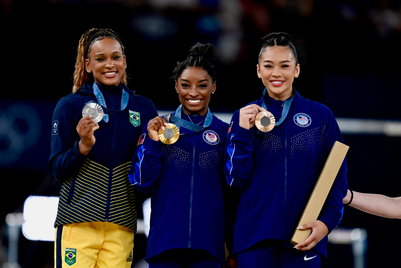.jpg&h=570&w=855&q=100&v=20250320&c=1)
Toyota is considering ending its nine-year sponsorship with the International Olympic Committee (IOC) with reports suggesting the decision stems from dissatisfaction with how sponsorship funds are being managed—particularly the IOC’s alleged “ineffectiveness in supporting athletes and promoting sports”. Instead, Toyota will pursue alternate strategies to support the sporting industry.
Sources close to the matter told Kyodo News in Japan on May 24 that while the sponsorship looks to be coming to an end, the brand hopes to retain its contract with the International Paralympic Committee. However the validity of such a deal is up in the air, as the IOC reportedly does not permit the application of singular contract sponsorships outside the main event.
Toyota signed on as an Olympic sponsor in March 2015, joining The Olympic Partner (TOP) programme. Their sponsorship, primarily focused on the mobility category including vehicles and mobility services, was aligned with the IOC's Olympic Agenda 2020, emphasising sustainability. This partnership extended globally from 2017 and was set to run through the end of 2024. Throughout this period, Toyota aimed to provide sustainable mobility solutions for the Olympic Games, which included enhancing transportation systems and services related to the event.
In signing the deal in 2015, the company also became the first automaker in the world to sign a top-tier sponsorship contract, with sources telling Kyodo News the brand has spent over 100 billion yen ($637 million) over the course of its tenure.
This is not the first time Toyota has pulled out of sponsorship components at the famed sports event. In 2021, the automaker chose not to air Olympic-themed advertisements in Japan during the Tokyo Games, despite being a top corporate sponsor. This decision was made due to the polarising nature of the Games in Japan, where there was rising concern about Covid-19 infections. At the time, AP News reported that Toyota’s chief communications officer, Jun Nagata, expressed difficulties in public understanding and acceptance of the Games given the pandemic at the time, while CEO Akio Toyoda also opted not to attend the opening ceremony. However, Toyota continued to support around 200 athletes affiliated with the company, including prominent names like swimmer Takeshi Kawamoto and softball player Miu Goto.
The Olympic Games have seen a number of key sponsorship evolutions over the last five years—especially through the course of the 2020 pandemic. The most promiment of names was McDonald's, which ended its 41-year deal with the Games in 2017, three years earlier than their intended end date. McDonald’s global chief marketing officer, Silvia Lagnado, announced at the time that the switch was part of their international expansion strategy to focus on new priorities, particularly driving sales within domestic markets.
Despite ongoing debates over the return on investment for Olympic sponsorships, the Organising Committee for the Paris Games successfully surpassed the €1 billion ($1 billion) mark in revenue last summer, bolstered by the addition of luxury brands group LVMH to its roster of top-tier sponsors. Other longstanding sponsors like Airbnb, Visa, and Coca-Cola have also persevered through the pandemic and beyond, indicating a promising outlook for future Olympic events.
The IOC has not yet announced a replacement for Toyota and no official statements have been released confirming the news.


.jpg&h=334&w=500&q=100&v=20250320&c=1)


.png&h=334&w=500&q=100&v=20250320&c=1)



.png&h=334&w=500&q=100&v=20250320&c=1)

.png&h=334&w=500&q=100&v=20250320&c=1)



+(1).jpg&h=268&w=401&q=100&v=20250320&c=1)



.png&h=268&w=401&q=100&v=20250320&c=1)